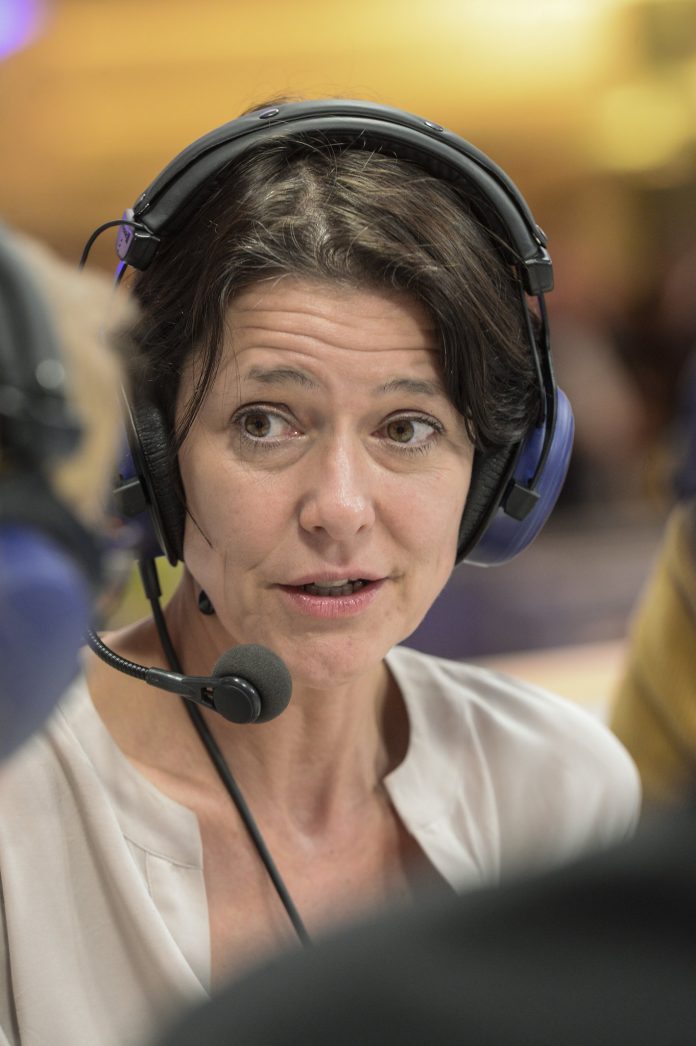Parliament calls for a geopolitical and values-based rethink of EU’s trade in a report on the bloc’s trade strategy after the COVID-19 pandemic.
The report by Kathleen Van Brempt (S&D, BE) that draws lessons from the effects of the COVID-19 pandemic on trade and highlights Parliament’s priorities for a new trade policy was adopted by 509 votes, with 63 against and 120 abstentions on Wednesday.
COVID lessons
The report stresses the need for international cooperation rather than competition or protectionism to deal with health emergencies. Export restrictions by vaccine manufacturer countries such as US, the UK, China and India hinder the global scaling up of production, it says. The EU’s own temporary export authorization scheme should morph into a transparency tool. Repeating a call at the June plenary session, MEPs ask the EU to engage in a “constructive dialogue” in the World Trade Organisation (WTO) for a temporary patent on COVID-19 vaccines.
Mandatory check of supply chains, sanctions for non-compliance
The EU’s ongoing trade strategy overhaul needs to accommodate changing geopolitical realities and the lessons of the pandemic, the report says. It calls for mandatory due diligence that ensures human, labour and environmental rights across all supply chains, the promotion of fair and ethical trade, and targeted help to vulnerable micro-, small- and medium-sized enterprises that weather shocks with more difficulty than large companies. MEPs advocate a better enforceability of trade and sustainable development chapters in trade agreements and in ongoing trade negotiations, including by allowing the introduction of tariffs and quotas or a suspension of trade agreements in case of breach.
Geopolitical tool
Trade MEPs underline: a strong, diversified and resilient EU trade policy serves as a geopolitical tool used through cooperation in international fora such as the WTO. However, if cooperation is not possible with certain trade partners, EU should pursue its interests through unilateral measures making use of its trade defence toolbox, the report states. Parliament asks, in particular, for anti-coercion measures, a tool to tackle foreign subsidies, and an International Procurement Instrument, all measures in various phases of progress. The report repeats its earlier position that the ratification of the EU-China Comprehensive Agreement on Investment “is unthinkable” without China lifting sanctions on certain MEPs, and that MEPs are going to take the human rights situation in Hong Kong into account when asked to endorse the deal, warns the report. Parliament urges the Commission to start the first steps of negotiating an investment agreement in Taiwan by the end of 2021.
Rapporteur Kathleen Van Brempt (S&D, BE)
“Post-COVID-19 recovery gives us a unique opportunity to invest in a values-based trade policy fit for the 21st century: making value chains fair, resilient and sustainable, strengthening human rights, access to medicines and environmental protection, while regaining people’s trust and ensuring fast global recovery. Our trade policy must fully embody the ambition of the Green Deal and we must close the gap between health and trade policy: Europe must play a leading role in the negotiations for an international pandemic treaty. In the global sphere, Europe needs to find its place as an influential actor and trade policy is its most powerful tool. Our openness is our strength and with our large market we continue to set global standards. But we must not be naïve: we will not give free entry passes to our house to those who don’t play by the rules”, the rapporteur said. Watch her plenary speech here.
The report feeds in to an ongoing review of the EU’s trade policy to which Parliament contributed in a resolution in November 2020.

